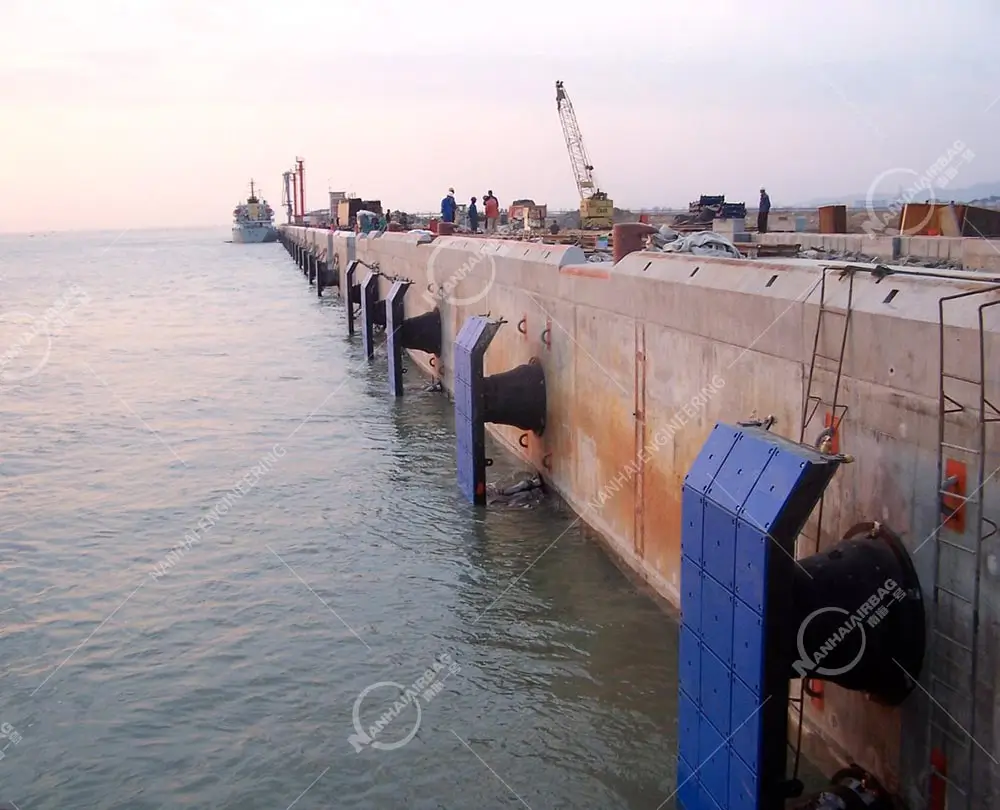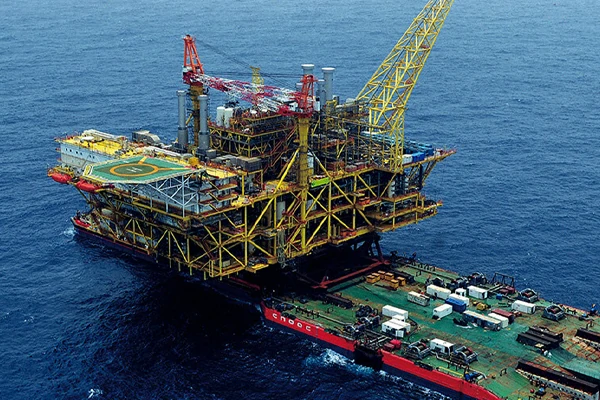What are bridge fenders?
06/02/2025What is the function of the safety valve of the pneumatic fender
06/02/2025How Should a Ship Be Moored?
Mooring a ship means keeping it safely in place when it arrives at a dock. It sounds simple—but without the right equipment, like mooring fenders, a ship can easily get damaged. In this article, we’ll walk through the mooring process and dive deeper into why fenders are so important.
What Is Ship Mooring?
Ship mooring is the act of tying a vessel to a fixed point, like a dock, buoy, or mooring dolphin, to prevent it from drifting due to wind, waves, or currents. It involves ropes, bollards, sometimes anchors, and always some form of protection between the ship and the dock—this is where fenders come in.
Full Mooring Process
Even though fenders are a focus here, let’s take a quick look at the overall mooring steps:
- The ship slows down and approaches the berth.
- Crew members prepare mooring ropes and fenders.
- The vessel is positioned alongside the dock.
- Ropes are passed to dock workers and tied to bollards.
- Fenders are adjusted if needed.
- Lines are tightened and secured.
Why Fenders Matter in Mooring
Fenders act like cushions between a ship and the dock. Without them, the hull of a ship could scrape, bump, or crash against hard concrete or steel structures. This can cause serious damage to the vessel, the dock, or both.
Think of fenders as the shock absorbers of the mooring world. They absorb energy, reduce impact, and keep the ship stable during berthing and loading.
Types of Marine Fenders
There are several types of fenders, and choosing the right one depends on the size of the ship, the dock structure, and local sea conditions.
1. Pneumatic Fenders (Yokohama Fenders)
- Large, air-filled rubber cylinders
- Float on the water between the ship and the dock
- Great for big vessels like tankers, LNG carriers, and offshore platforms
- Easy to deploy, durable, and excellent at absorbing shock
2. Foam-Filled Fenders
- Filled with closed-cell foam and covered in tough skin
- Don’t deflate even if punctured
- Used in rough environments or with frequent contact
3. Rubber Fenders
- Fixed to the dock (V-fenders, D-fenders, cone fenders, etc.)
- Common in ports and harbors
- Reliable and low-maintenance
4. Hydro Pneumatic Fenders
- Easily moved to provide flexibility in berthing
- Applied for a submarine, semi-submerged ship




How to Use Fenders Correctly
- Place fenders before docking – The crew should position the fenders on the ship’s side well in advance.
- Use enough fenders – Larger ships need more fenders spaced evenly.
- Match fender size to vessel size – Undersized fenders may not provide enough protection.
- Check for wear and tear – Inspect fenders regularly for air pressure (for pneumatic) or outer damage.
- Avoid overcompression – Let the fenders do their job by keeping the mooring lines tight but not overly stretched.
Safety Tips
- Always stand clear of mooring lines under tension.
- Wear gloves and protective gear.
- Keep fenders properly inflated and inspected.
- Monitor wave and wind conditions during mooring.
Conclusion: Fenders First, Always
Mooring isn’t just about ropes and anchors—it’s about protection. Fenders help reduce risk, save money, and protect both ship and port infrastructure. Whether you’re handling a small boat or a massive cargo ship, using the right fender in the right way makes all the difference.
FAQs About Fenders
Q: Why are pneumatic fenders so popular for large ships?
A: They float, absorb much energy, and are easy to install or move between berths.
Q: How often should fenders be checked?
A: At least before every mooring operation, and monthly for routine maintenance.
Q: Can I use dock-mounted fenders only?
A: It depends. Dock-mounted fenders are great, but ships often carry their own for added protection, especially in busy or rough berths.
Ready to Moor Smarter and Safer? Choose NANHAI Fenders.
At NANHAI, we understand that safe mooring starts with reliable protection. That’s why we specialize in high-performance pneumatic fenders and mooring solutions trusted by ports, shipyards, and offshore operators worldwide. Whether you’re managing a busy harbor or outfitting a new vessel, our fenders are built to absorb impact, last longer, and perform when it matters most.
Contact us today to find the right fender for your ship—or request a free quote now.
Let NANHAI be your trusted partner in safe, smart mooring.





